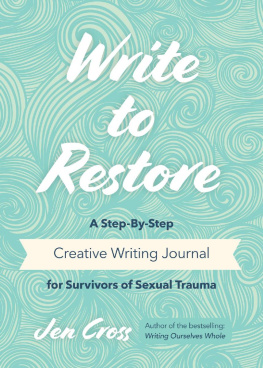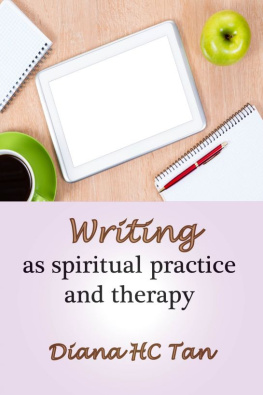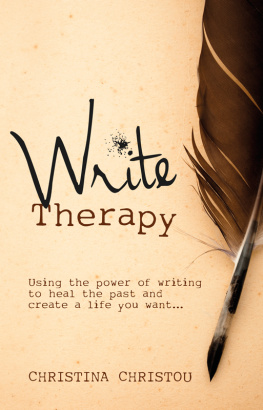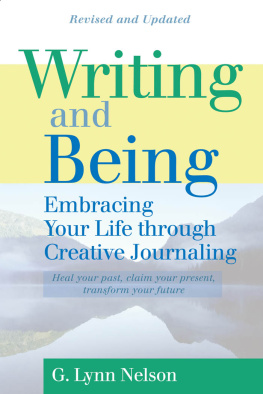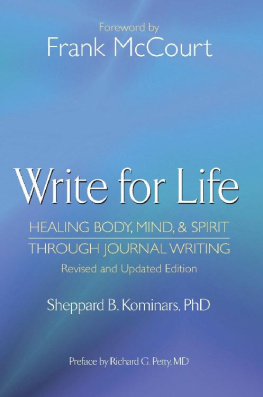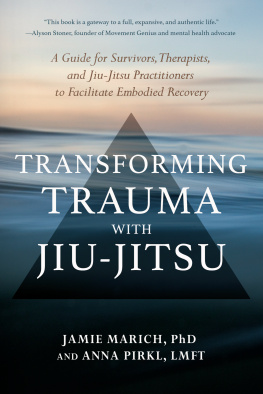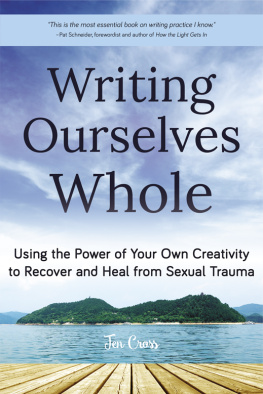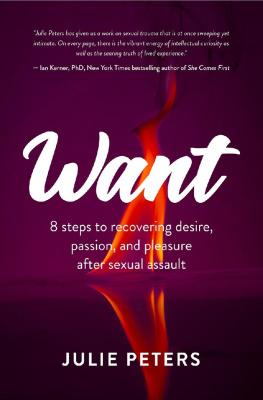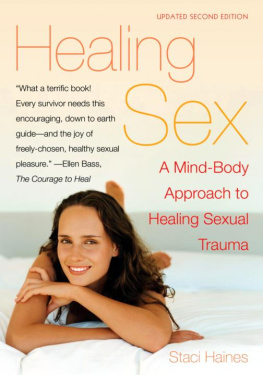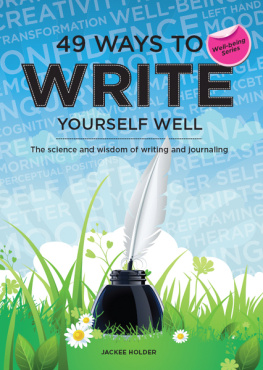Write to Restore

Write to Restore
A Step-By-Step
Creative Writing Journal
for Survivors of Sexual Trauma
Jen Cross

Mango Publishing
Coral Gables
Copyright 2019 by Jen Cross.
Published by Mango Publishing Group, a division of Mango Media Inc.
Cover Design: Roberto Nuez
Cover Photo/illustration: Charcompix (Shutterstock)
Layout & Design: Roberto Nez
Mango is an active supporter of authors rights to free speech and artistic expression in their books. The purpose of copyright is to encourage authors to produce exceptional works that enrich our culture and our open society.
Uploading or distributing photos, scans or any content from this book without prior permission is theft of the authors intellectual property. Please honor the authors work as you would your own. Thank you in advance for respecting our authors rights.
For permission requests, please contact the publisher at:
Mango Publishing Group
2850 S Douglas Road, 2nd Floor
Coral Gables, FL 33134 USA
For special orders, quantity sales, course adoptions and corporate sales, please email the publisher at or +1.800.509.4887.
Write to Restore: A Step-By-Step Creative Writing Journal for Survivors of Sexual Trauma
Library of Congress Cataloging-in-Publication number: 2019948612
ISBN: (print) 978-1-64250-106-3, (ebook) 978-1-64250-107-0
BISAC category code SELF-HELP / Abuse
Printed in the United States of America
Welcome , welcome.
I am so glad that you are here:
alive an d healing,
at the page, and ready to write.

Table of Contents
Our words restore us, and our writing can re-story our lives.
In a quiet morning bedroom, on the bus or subway on the way to work or school, in the laundromat while waiting for the spin cycle to complete, at a kitchen table, at innumerable cafesover and over, throughout the country, around the worldpeople are sitting down to write.
Early morning, over lunch breaks, during the wee hours of the night: we who have experienced something that interrupted our sense of self, we who have been irrevocably harmed or violated, we who experienced something so outside our normal, our understanding of ourselves, that we lost even the language to try and express itwe are turning to the page. We who had language taken from us, we whose words were ignored or denied, we who were hurt even before we had the words for what was being done to uswe reach for wor ds anyway.
We are a species made of words and stories. When we are without language for ourselves and our lives, we often feel profoundly disconnected from our communities, even from the rest of humanity.
Writi ng can be:
a way to release images and experiences that have been held in our bodies for years
a way to discover what we didnt kn ow we knew
a way to re-story ourselves and our lives
a way to regain trust in our creative instinct and voice
a way to heal in bod y and mind
As you reach for words, sometimes it is helpful to have someone with you. This journal guides you through a series of exercises I first developed for the Write Whole survivors writing group, offered through my organization, Writing Oursel ves Whole.
In this guided workbook, a companion to my book Writing Ourselves Whole: Using the Power of Your Own Creativity to Recover and Heal from Sexual Trauma , well move loosely through a series of themes, beginning gently before shifting to more intense writing midway, then broadening out to connect with community and self-care.
Week One: Beginnings In week one, we warm up our writing hands with a couple of short writing exercises that invite us to practice fr eewriting.
Week Two: Conversations with the Body In week two, we drop into these bodies that sustain us: what untold, unsung stories do we carry under our skin?
Week Three: Myths and Truths Many of the stories told about sexual trauma survivors are based on lies and denial, and they can harm our understanding of ourselves, our survival, and our healing. In week three, we examine, unpack, and re-story th ose myths.
Week Four: Reclaiming Voice Our voices are a core part of who we are. In week four, we think about the ways our voices have been ignored or denied, and we talk back, speak up, and demand to be heard.
Week Five: Writing into Spirit Spirit is a complicated concept for many of us, but we may want to connect with something outside of ourselves bigger than we are, whether a god or nature or community. In week five, we make some space on the page to speak to spirit and listen to what she has to say back.
Week Six: Welcoming Our Desire We who are survivors of sexual trauma may have extremely mixed feelings about our desires, especially our sexual desires. In week six, we gently write into some of those hungers, considering what our bodies want and how we can most tenderly claim that touch, if and when we choose it.
Week Seven: Reaching Back Through the Fire In week seven, we consider those people and voices that show us what survival could look like. What can we pay forward to the survivors coming up after us?
Week Eight: Radical Self-Care What does it mean to care for something that has been misused or harmed? Taking care of ourselves is a profoundly political and radical act, as Audre Lorde told us a long time ago. In our closing week, we write into the possibility and joy of loving what we were taught t o despise.
The Task Ahead
Journal writing can be a practice that changes us, helping us to find language for fragmented experiences within us that feel incomplete. This book is a tool as you grow your own practiceuse it in any way that best serves you, your words, your writing, you r healing.
Make the prompts work for you. Sometimes, if youre stuck, you might want to try changing the pronoun in the prompt. Most of these prompts are in the first-person singular (I), but you can change to first-person plural (we), the second person (you), or the third person (she/he/they). See how the writing changes when the point of view changes. If you get stuck while youre writing, you can start over with the same prompt, make the prompt a negative (instead of How would you tell this story? think How would you not tell this story?), or use the phrase, What I really wanted to write a bout was
You might use this book alone, going straight through the eight weeks, responding to two prompts per week, just as wed do in a writing workshop. You might open the journal at random, allowing a prompt to select you. If you find yourself opening to a prompt youve done before, thats ok. In my experience, something new emerges when an old prompt is revisited.
You can write in partnership with a collaborator, a friend, or another survivor. You might also choose to write in a circle with a group of others. You can write together and then read aloud what youve written (if you choose to). You can talk about the process if you like or discuss things that came up for you during th e writing.
If you are bringing a group together, you might wish to read through the Witness section of Writing Ourselves Whole (and, in particular, the chapter DIY Wit(h)ness: Ideas for Gathering Your Own Group) for things to consider when co-creating a space that serves and holds all writers and writing, a space for risk and discovery and g enerosity.
Next page
